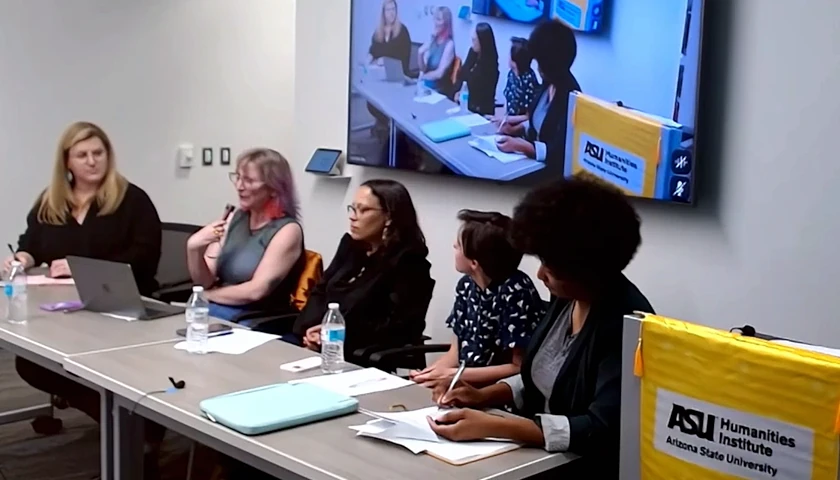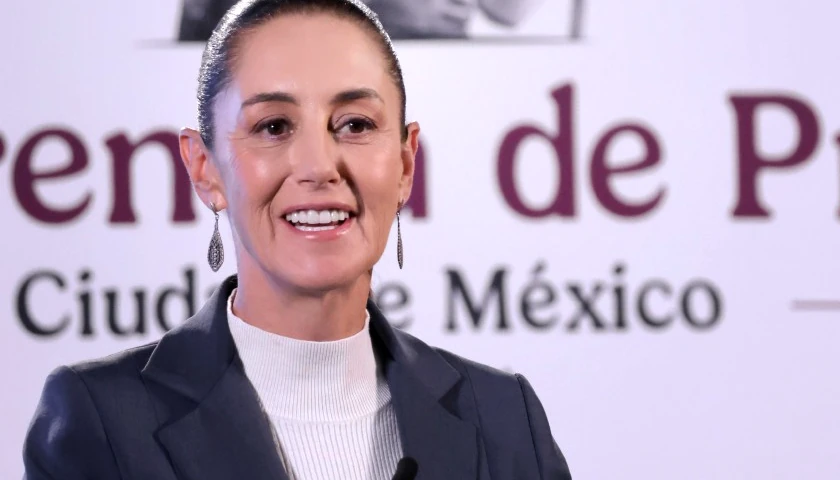by Gabrielle Temaat
Arizona State University Professor Crystal Jackson condemned the “anti-trafficking movement” and “deviant framing” of “sex workers” during an event on campus last week.
During the “Queer X Faculty Flashtalks” event, Jackson told the students and staff in attendance that “Sex workers have been and are at the heart of queer liberation.”
“We wouldn’t have the modern-day LGBTQ plus movement in the U.S. … without sex-working trans people,” she said.
Jackson, who teaches women and gender studies, criticized society for viewing “transgender people and sex working people” as “deviant” and as “other, as non-normative, and as disposable.”
The professor also condemned the anti-trafficking movement. She said the practices put in place to combat human trafficking in the U.S. contribute to a surveillance system that disproportionately affects certain racial and gender groups.
“At the turn of the 21st century … there was this moral panic about the ‘white sex slavery trade,’ which is not happening. It’s anti-immigrant, it’s racist, it’s transphobic forms of policing, particularly around women of color,” Jackson said.
“It co-opts sex workers’ liberatory language and … co-opts the racial justice abolitionist language,” she said.
Jackson also said she defines all kinds of “sex work” as “queer” because such “work” challenges norms “in a violently gendered…violently racist social world.”
At the beginning of her presentation, she introduced herself as “a queer, bisexual, femme, white, formerly working-class, Jewish, anti-Zionist scholar and activist.”
She told attendees her previous research includes “the tenuous feminisms of self-proclaimed queer porn mafia performers and producers who then honor the grandfather of queer porn, trans male porn performer Buck Angel.”
“I’ve researched the awkwardness of local city and county codes, so really local city and county commissioners trying to define the lap of a lap dance,” the professor said.
“Where does a lap end and genitals begin? It’s quite funny, actually, to kind of see that, and I view that through a sort of queer lens,” Jackson said.
According to ASU’s website, her “current research explores how the racial justice concept of ‘abolitionism’ is deployed in mainstream, institutionalized U.S. anti-sex trafficking policies and advocacies to demand actions that are in direct opposition to racial justice abolitionist aims.”
The College Fix reached out to Professor Jackson twice via email for comment but she did not respond.
Queer X Humanities, a new initiative at ASU, hosted the event. The school’s website describes the initiative as an “intellectual community…that fosters queer and transgender scholarship, interdisciplinary collaboration, and critical dialogue about LGBTQIA2S+ culture, history, and politics.”
Other event speakers included media studies Professor Aviva Dove-Viebahn and women and gender studies Professor Rachel Corbman, who both discussed their research projects in “queer studies.”
Corbman told The College Fix in an email that the goal of her presentation was to introduce the premise of a book she is writing, which analyzes “a history of the conflicts that shaped women’s studies and gay and lesbian studies.”
“It’s probably fair to say that my remarks were largely geared towards feminist, queer, and trans scholars who are familiar with and interested in the history of feminist and queer field formation, since that is the main audience for my book,” Corbman told The Fix.
Event co-organizer Julia Himberg told The Fix via email that she hopes “attendees saw opportunities to develop new intellectual paths, foster interdisciplinary research collaborations, and build community across ASU’s schools and colleges.”
“The goal of the event was to present an engaging and interactive session where scholars across the university came together to share their research, to bridge disciplinary divides, and to connect with other scholars and practitioners,” Himberg said.
“With this initiative, we hope to create a centralized space for many collaborative, intellectual, and communal conversations to come,” she said.
The College Fix also reached out to Professor Dove-Viebahn, Arizona State University media relations, and Queer X Humanities co-director Sa Whitley for comment via email. None responded.
– – –
Gabrielle Temaat is an assistant editor at The College Fix. She holds a B.S. in economics from Barrett, the Honors College, at Arizona State University.
Image “Panel Discussion at ASU” by ASU Humanities.








